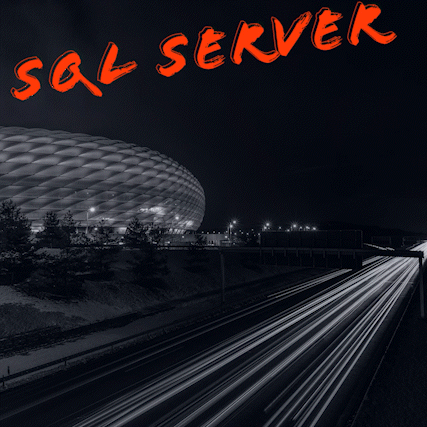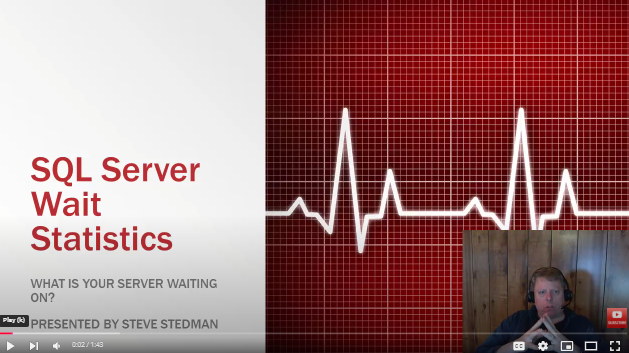Wait statistics, in the context of SQL Server, refer to the amount of time that a query spends waiting to access data in the database. When a client application requests data from the database, the request is placed in a queue and the client application must wait for its turn to access the data. The time that the query spends waiting is called a "wait" and is tracked by SQL Server. This information can be used to identify potential performance bottlenecks and optimize the performance of the database. Wait statistics are commonly used by database administrators to diagnose and troubleshoot performance issues in SQL Server.
In SQL Server Always On Availability Groups, various wait types reflect the systemís efforts to maintain synchronization and high availability. One such wait type is HADR_NOTIFICATION_WORKER_EXCLUSIVE_ACCESS. Understanding this wait type can help you troubleshoot and optimize your Always On environment effectively.
What is HADR_NOTIFICATION_WORKER_EXCLUSIVE_ACCESS?
The HADR_NOTIFICATION_WORKER_EXCLUSIVE_ACCESS wait type occurs when SQL Server is waiting for exclusive access to a worker responsible for handling Always On Availability Group notifications. These notifications are part of the systemís mechanism for ensuring all replicas stay synchronized and aware of changes in the availability groupís state.
In simpler terms, this wait type indicates that SQL Server is waiting for a chance to manage notifications related to Always On. While some occurrences are expected, excessive waits could signal contention or bottlenecks in the system.
Why Does HADR_NOTIFICATION_WORKER_EXCLUSIVE_ACCESS Happen?
Several factors can lead to HADR_NOTIFICATION_WORKER_EXCLUSIVE_ACCESS waits, including:
- High activity in the Always On Availability Group, resulting in frequent state changes or updates.
- Limited resources on the server, such as CPU or memory, causing delays in processing notifications.
- Contention between multiple tasks trying to access the notification worker simultaneously.
- Complex or heavily loaded Always On configurations with multiple replicas.
- Network latency or disruptions impacting communication between replicas.
Identifying and addressing these factors can reduce the impact of this wait type and enhance overall performance.
How to Monitor HADR_NOTIFICATION_WORKER_EXCLUSIVE_ACCESS Waits
Monitoring HADR_NOTIFICATION_WORKER_EXCLUSIVE_ACCESS waits is essential for understanding their frequency and impact. The Database Health Monitor is a powerful tool that helps you track this and other wait types. Its Historic Waits Monitoring feature provides valuable insights into when these waits occur and how they correlate with system activity.
By using Database Health Monitor, you can identify patterns and pinpoint the root causes of these waits, allowing you to take targeted actions to resolve performance issues.
What Can You Do About HADR_NOTIFICATION_WORKER_EXCLUSIVE_ACCESS Waits?
If youíre encountering frequent or prolonged HADR_NOTIFICATION_WORKER_EXCLUSIVE_ACCESS waits, consider the following steps:
- Optimize Always On Availability Group configurations to reduce unnecessary state changes and updates.
- Ensure that the server hosting the primary replica has sufficient CPU, memory, and I/O resources to handle notifications efficiently.
- Upgrade network bandwidth and reliability to minimize latency between replicas.
- Monitor and address contention by reviewing tasks that interact with the notification worker.
- Distribute workloads across replicas to reduce pressure on the primary server.
These actions can help you manage notifications more efficiently, reducing this wait typeís impact on your environment.
How Stedman Solutions Can Help
At Stedman Solutions, we specialize in SQL Server performance tuning and troubleshooting, including resolving issues with wait types like HADR_NOTIFICATION_WORKER_EXCLUSIVE_ACCESS. Our managed services provide proactive monitoring and expert support to optimize your Always On Availability Groups. Additionally, our Database Health Monitor offers comprehensive tools for tracking and analyzing SQL Server waits, ensuring your database system performs at its best.
If youíre facing challenges with your Always On setup or need assistance optimizing your SQL Server environment, contact us today. Let us help you achieve a reliable, high-performing database system!

Find out more about our SQL Server Managed Services
Applies to
Related Waits
HADR_AG_MUTEXHADR_AR_CRITICAL_SECTION_ENTRY
HADR_AR_MANAGER_MUTEX
HADR_AR_UNLOAD_COMPLETED
HADR_ARCONTROLLER_NOTIFICATIONS_SUBSCRIBER_LIST
HADR_BACKUP_BULK_LOCK
HADR_BACKUP_QUEUE
HADR_CLUSAPI_CALL
HADR_COMPRESSED_CACHE_SYNC
HADR_CONNECTIVITY_INFO
HADR_DATABASE_FLOW_CONTROL
HADR_DATABASE_VERSIONING_STATE
HADR_DATABASE_WAIT_FOR_RESTART
HADR_DATABASE_WAIT_FOR_TRANSITION_TO_VERSIONING
HADR_DB_COMMAND
HADR_DB_OP_COMPLETION_SYNC
HADR_DB_OP_START_SYNC
HADR_DBR_SUBSCRIBER
HADR_DBR_SUBSCRIBER_FILTER_LIST
HADR_DBSEEDING
HADR_DBSEEDING_LIST
HADR_DBSTATECHANGE_SYNC
HADR_FABRIC_CALLBACK
HADR_FILESTREAM_BLOCK_FLUSH
HADR_FILESTREAM_FILE_CLOSE
HADR_FILESTREAM_FILE_REQUEST
HADR_FILESTREAM_IOMGR
HADR_FILESTREAM_MANAGER
HADR_GROUP_COMMIT
HADR_LOGCAPTURE_SYNC
HADR_LOGCAPTURE_WAIT
HADR_LOGPROGRESS_SYNC
HADR_NOTIFICATION_DEQUEUE
HADR_NOTIFICATION_WORKER_STARTUP_SYNC
HADR_NOTIFICATION_WORKER_TERMINATION_SYNC
HADR_PARTNER_SYNC
HADR_READ_ALL_NETWORKS
HADR_RECOVERY_WAIT_FOR_CONNECTION
HADR_RECOVERY_WAIT_FOR_UNDO
HADR_REPLICAINFO_SYNC
HADR_SYNC_COMMIT
HADR_SYNCHRONIZING_THROTTLE
HADR_TDS_LISTENER_SYNC
HADR_TDS_LISTENER_SYNC_PROCESSING
HADR_TIMER_TASK
HADR_TRANSPORT_DBRLIST
HADR_TRANSPORT_FLOW_CONTROL
HADR_TRANSPORT_SESSION
HADR_WORK_POOL
HADR_WORK_QUEUE
HADR_XRF_STACK_ACCESS
See Also
All Wait Types


